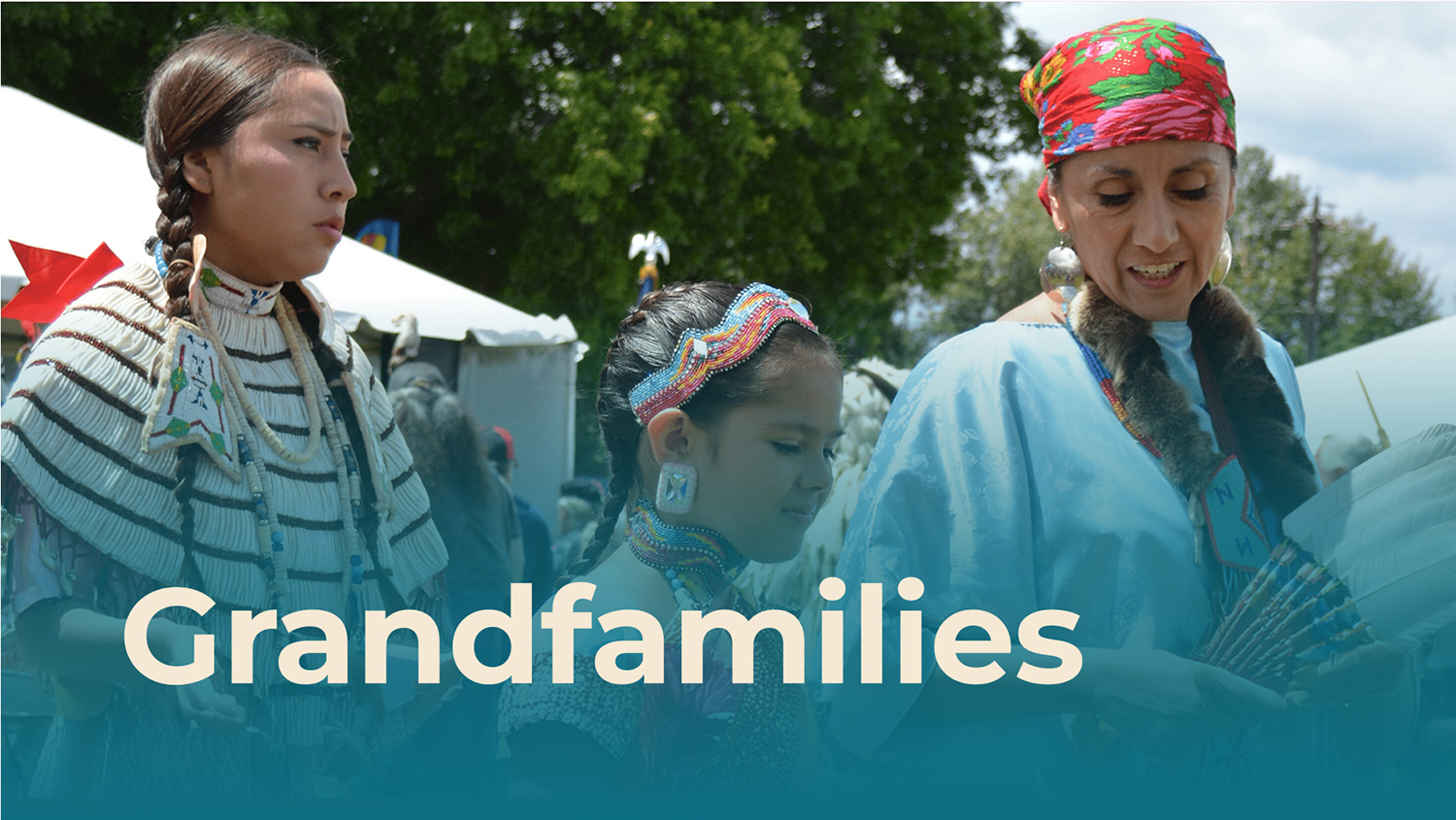Historically, the traditional systems of child-rearing in Indigenous communities created a natural system of child safety, family support, and community wellness. While who is considered family varies by culture, responsibility for the care of children is often embraced not solely by the child’s birth parents but also the child’s extended family, close family friends, and community members. Although relative caregivers are central to child safety and well-being, little attention has been paid to ensuring that child welfare policies honor and support the integrity of extended family systems.
Today, tribal child welfare programs are reclaiming the strengths inherent in these interdependent networks. In supporting whole families, tribal child welfare programs may need to develop policies that address how to engage and support extended family networks at different stages of child welfare intervention. Crafting policies consistent with tribal cultures, values, and teachings is critical to actively engaging relative caregivers in a way that recognizes their needs and concerns as intertwined with the child’s need for safety, the parents’ need for support, and the family’s collective need for healing. This summer, NICWA will launch a two-part policy toolkit on relative caregiver or kinship services in tribal child welfare in partnership with the Grandfamilies and Kinship Support Network: A National Technical Assistance Center. Part one of the two-part toolkit will examine several issues tribal child welfare programs may want to consider when drafting policies and procedures regarding engagement of extended families in services, the support of relative caregivers who step into parenting roles, and in formal kinship care. Part two of the toolkit will provide policy guidance and sample trauma-informed language to support the development of tribally specific child welfare policy to address the issues outlined in part one. Along the continuum from prevention to substitute care, the new toolkit will highlight key policy themes in child welfare and how relative caregivers may be prioritized in policy development as an important resource for child safety both as support to birth parents and as a placement resource. The toolkit explores the ways how policy can inform practice approaches that minimize the trauma and loss associated with family separation, build on family strengths and capacity, preserve cultural identity, enhance placement stability, restore nurturing networks, and create space for healing.
Stay tuned for the launch of the toolkit at www.nicwa.org/latest-news and www.gksnetwork.org.
Port Gamble S’Klallam Tribe Creates Resource for Grandfamilies
As part of the Grandfamilies and Kinship Support Network: A National Technical Assistance Center, NICWA had the opportunity to work with tribes to learn and share about the good work that they are doing with grandfamilies or relative caregivers. One of the resources NICWA is developing in partnership with the Network is called Tribal Grand Fact Sheets. NICWA worked closely with the Port Gamble S’Klallam Tribe (PGST) to create the PGST Tribal Fact Sheet for Kinship/Grandfamilies for their community members. The fact sheet provides detailed information about the services that may support families who are raising their relative children. In addition to being a resource for the community, it also serves as a resource for those in neighboring communities that work with Native families raising their relative children and as an opportunity for other tribes to learn more about how tribes are supporting this work.
Many working in Indian Country may know that Native children comprise 1% of all children in the U.S. and 2% of all children in foster care. However, did you know that 8% of children being raised in grandfamilies or kinship care are Native (United States Census Bureau, Annie E. Casey Foundation Kids Count Data Center, Adoption and Foster Care Analysis Reporting System)? While the overrepresentation of Native children in kinship/grandfamilies is likely a product of the centuries-long shameful treatment of Native communities by the United States and the many inequities our communities continue to face, it is also a reflection of cultural strengths and resilience. The Port Gamble S’Klallam Tribe recognizes this strength and resilience and addresses this in their kinship definition and their programming for kinship caregivers. If you’d like to learn more about their kinship programming, please download the PGST Tribal Factsheet for Kinship/Grandfamilies.
To request technical assistance or training regarding kinship-related policies, contact NICWA’s Child Welfare Director Tara Reynon.
NICWA Child Welfare Director
tara@nicwa.org
